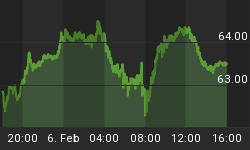What Happens in Europe Will Not Stay in Europe
More than 1,500 years after the fact, scholars still debate the causes of the Roman Empire's fall.
What historians do agree on is that the crumbling empire's final days were marked by economic contraction, a struggle to fund Rome's routine affairs and excessive debt.
Sound familiar?
Mark Twain said, "History doesn't repeat itself, but it does rhyme."
That quote seems to apply when economically comparing the Roman Empire and the United States.
Today's superpower also faces a mountain of debt and a slow economy.
Unlike then, however, the modern economy is global.
So an economic downturn in one major area of the globe is likely to affect another. In fact, even during the Great Depression (long before the phrase "global economy"), Europe was exporting to America.
But one historic export was not the kind that the U.S. welcomed.
The economy is clearly vulnerable to a debilitating wave of debt deflation. The threat is approaching quickly from an important source: Europe. The same sequence of events occurred in 1929, when deflation started overseas before lapping onto U.S. shores.
The Elliott Wave Financial Forecast, January 2012
The Financial Forecast has long kept a careful eye on the threat Europe's debt crisis poses to the U.S. economy.
The economic slowdown that EWFF characterized in January as Europe's "top export" is finally reaching foreign shores. Several financial news outlets report that the U.S. and China are now "slipping in sync" with Europe.
The Financial Forecast, June 2012
And recent news registered the economic slowdown.
- Small Businesses Grow Wary; See Fewer Hires -- Reuters, Oct. 9
- IMF Slashes Forecasts for Global Economic Growth -- CNBC, Oct. 8
- World Bank Cuts East Asia GDP Outlook, Flags China Risks -- Reuters, Oct. 7
- Europe's Richer Regions Want Out -- New York Times, Oct. 7
- Entrepreneurship is 'weaker than ever' -- CNNMoney, Oct. 5
- The U.S. unemployment rate tumbled to 7.8% in September but a broader measure was flat at 14.7%. [emphasis added] - Wall Street Journal, Oct. 5
- Orders to U.S. Factories Plunge -- Bloomberg, Oct. 4
- Spain's Tax Take Tumbles as Companies Go Abroad -- Reuters, Oct. 3
- Trade Slows Around World -- Wall Street Journal, Oct. 1
Indeed, the European Central Bank recently initiated a new bond buying plan, the Bank of Japan just expanded its asset purchase and loan program, and the Federal Reserve announced QE3.
But don't count on central bankers to rescue the global economy.
Consider what Robert Prechter said in the July 2012 Elliott Wave Theorist:
The Fed's actions are short-term inflationary but are setting up a bigger crash than would happen otherwise.
Why do The Fed and other central banks around the world keep making these types of mistakes? You can find out for free. See below for details.

Take An Important Step Toward Understanding the Federal Reserve System
In the free 34-page eBook, Understanding the Fed, you'll learn how the Federal Reserve controls the money supply, you'll pin-point a few critical points in Federal Reserve history, and you'll uncover several important myths and misconceptions, like who owns the Federal Reserve Bank.
This eye-opening report, which represents more than 10 years of research, goes beyond the Fed's history and government mandate; it digs into the Fed's real motivations for being the United States' "lender of last resort."
Get your 34 page eBook now by creating your free Club EWI profile >>
This article was syndicated by Elliott Wave International and was originally published under the headline In 1929, Deflation Started in Europe Before Overtaking the U.S.. EWI is the world's largest market forecasting firm. Its staff of full-time analysts led by Chartered Market Technician Robert Prechter provides 24-hour-a-day market analysis to institutional and private investors around the world.















